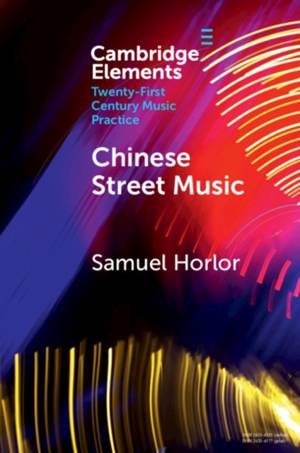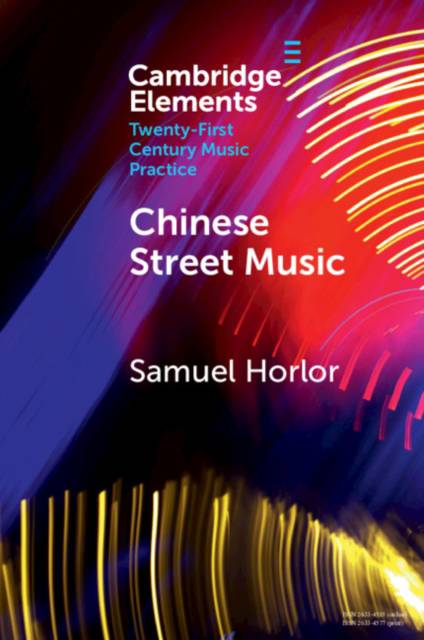
Je cadeautjes zeker op tijd in huis hebben voor de feestdagen? Kom langs in onze winkels en vind het perfecte geschenk!
- Afhalen na 1 uur in een winkel met voorraad
- Gratis thuislevering in België vanaf € 30
- Ruim aanbod met 7 miljoen producten
Je cadeautjes zeker op tijd in huis hebben voor de feestdagen? Kom langs in onze winkels en vind het perfecte geschenk!
- Afhalen na 1 uur in een winkel met voorraad
- Gratis thuislevering in België vanaf € 30
- Ruim aanbod met 7 miljoen producten
Zoeken
Omschrijving
Musical community is a notion commonly evoked in situations of intensive collective activity and fervent negotiation of identities. Passion Square shows, the daily singing of Chinese pop classics in parks and on street corners in the city of Wuhan, have an ambivalent relationship with these ideas. They inspire modest outward signs of engagement and are guided by apparently individualistic concerns; singers are primarily motivated by making a living through the relationships they build with patrons, and reflection on group belonging is of lesser concern. How do these orientations help complicate the foundations of typical musical community discourses? This Element addresses community as a quality rather than as an entity to which people belong, exploring its ebbs and flows as associations between people, other bodies and the wider street music environment intersect with its various theoretical implications. A de-idealised picture of musical community better acknowledges the complexities of everyday musical experiences.
Specificaties
Betrokkenen
- Auteur(s):
- Uitgeverij:
Inhoud
- Aantal bladzijden:
- 72
- Taal:
- Engels
- Reeks:
Eigenschappen
- Productcode (EAN):
- 9781108822930
- Verschijningsdatum:
- 29/04/2021
- Uitvoering:
- Paperback
- Formaat:
- Trade paperback (VS)
- Afmetingen:
- 152 mm x 229 mm
- Gewicht:
- 108 g

Alleen bij Standaard Boekhandel
+ 66 punten op je klantenkaart van Standaard Boekhandel
Beoordelingen
We publiceren alleen reviews die voldoen aan de voorwaarden voor reviews. Bekijk onze voorwaarden voor reviews.









